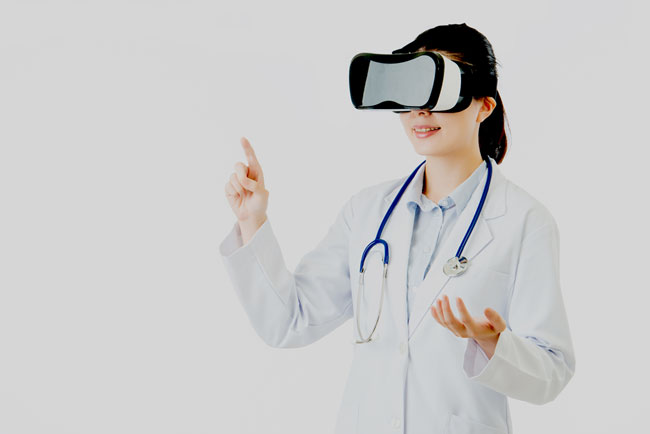Hello!
Here are the top 8 VR apps in healthcare. Many healthcare organizations are already using virtual reality and other technologies such as augmented reality. Technologists use virtual reality in many areas, such as patient care and hospital administration.
 The VR market in healthcare is projected to grow at 16.21% over the forecast period. It will reach US$8.03B in 2027 from US$2.06B in 2019, and US$8.03B in 2027. This is due to a greater need for new diagnostic tools and a rise in awareness of neurological diseases. Let’s now take a look at
The VR market in healthcare is projected to grow at 16.21% over the forecast period. It will reach US$8.03B in 2027 from US$2.06B in 2019, and US$8.03B in 2027. This is due to a greater need for new diagnostic tools and a rise in awareness of neurological diseases. Let’s now take a look at
8 Best VR applications in the Healthcare
1. Embodied Labs
Embodied Labs is a company that specializes in immersive educational technology. It uses virtual reality software to train caretakers. The Los Angeles-based company created a new technology.
Carrie Shaw, founder of the company, created the technology based on her personal experience.
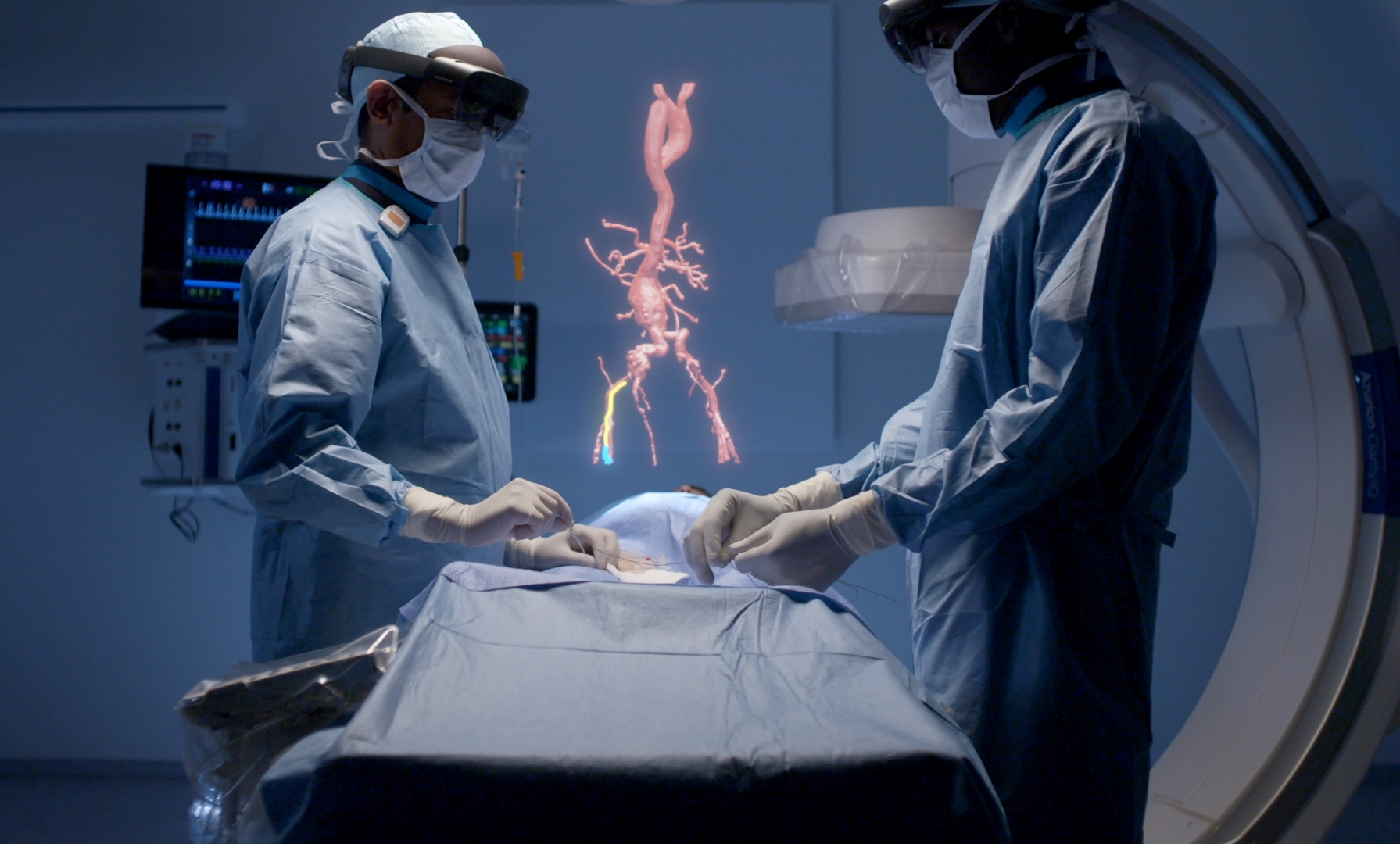 Embodied Labs started to focus on aging care. They created several training sessions that addressed the issues of hearing loss, eyesight, and dementia.
Embodied Labs started to focus on aging care. They created several training sessions that addressed the issues of hearing loss, eyesight, and dementia.
According to Shaw, they started focusing on elderly care. They now offer training programs for the hospice industry and Alzheimer’s disease.
2. Floreo
It is difficult for autistic people and their families to find work when they have not been able to attend school. Another issue is isolation, which often occurs due to misconceptions about autism.
It is a wonderful platform for autism sufferers and their children. Virtual reality technology allows them to develop their linguistic, motor, and social skills.
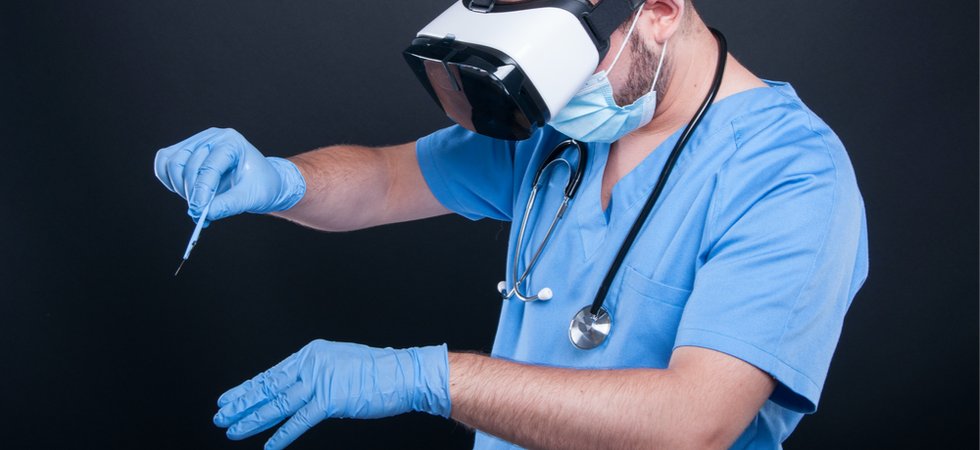 It is designed to cater for those with Autism Spectrum Disorder (ASD), or other developmental disabilities. Floreo’s extensive library of classes in immersive environments allow people with ASD practice real-world skills with supervision from an adult.
It is designed to cater for those with Autism Spectrum Disorder (ASD), or other developmental disabilities. Floreo’s extensive library of classes in immersive environments allow people with ASD practice real-world skills with supervision from an adult.
3. XRHealth
XRHealth can offer compassionate support to those who have failed unsuccessful therapies and are in need of help. The cutting-edge therapies include virtual reality.
Eran Orr, CEO and Founder at XRHealth, mentioned his prior serious illness that was caused by repeated high-G-force flights. This necessitated physical therapy. Surgery was recommended because it could lead to paralysis.
4. SyncThink
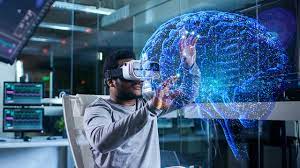 Another outstanding VR application case is SyncThink in Palo Alto (California). The neuro-technology company was founded by Dr Jam Ghajar in 2009. It produced EYE SYNC, an integrated VR device for eye-tracking.
Another outstanding VR application case is SyncThink in Palo Alto (California). The neuro-technology company was founded by Dr Jam Ghajar in 2009. It produced EYE SYNC, an integrated VR device for eye-tracking.
The device is a combination of a virtual reality headset and a cloud-based software that can analyse the data. Eye-sync is able to measure the eye movements of people wearing VR glasses.
The platform can be used by pro teams to analyze the cumulative effects fatigue throughout the season. This will provide objective insight into the performance of sports players.
5. Surgical Theatre
This platform has helped surgeons improve their pre-operative planning. Surgeons can see a virtual simulation of a procedure if a patient has been scheduled for a brain tumor operation.
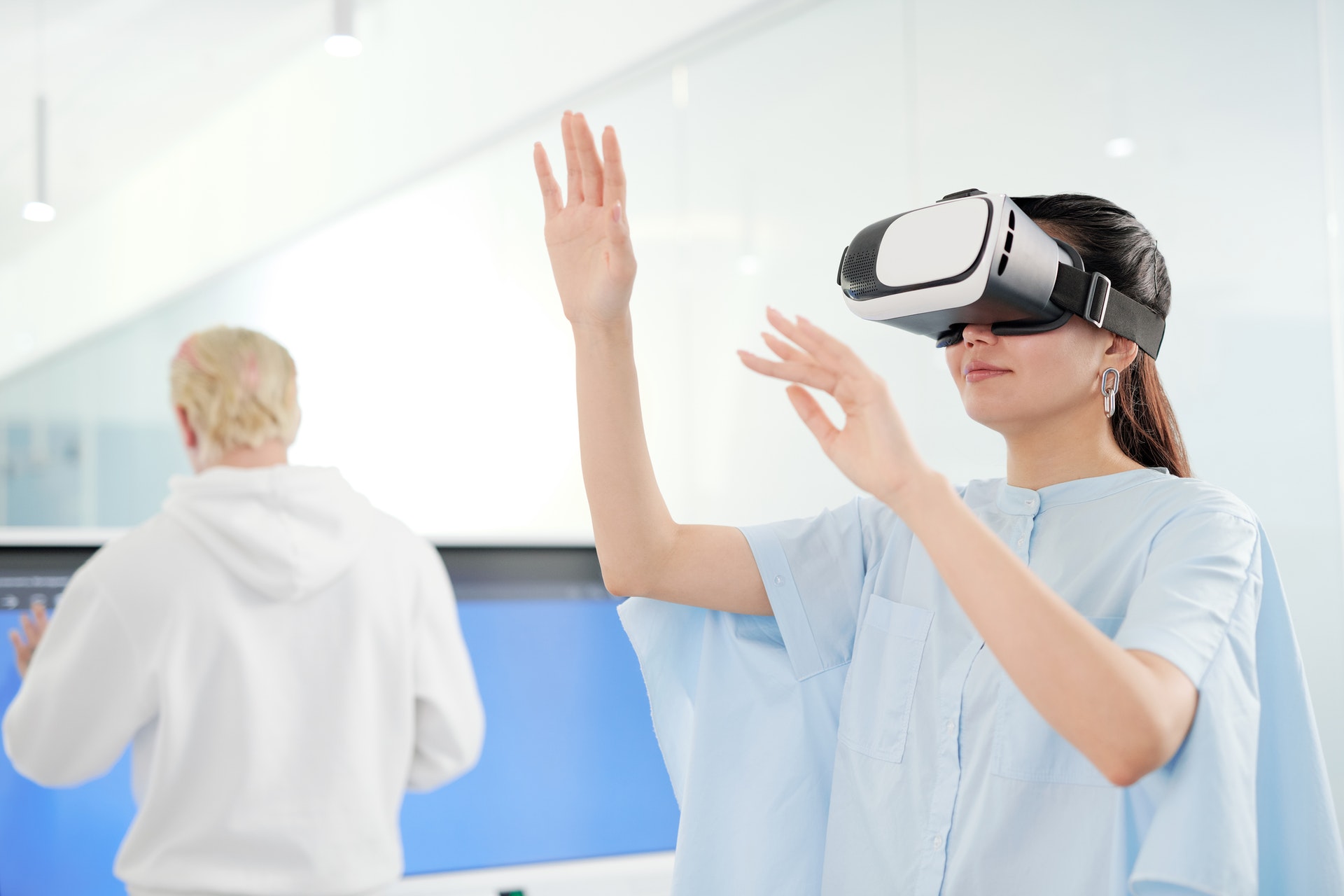 It is not surprising that neurosurgery is being supported at some of the most prestigious academic institutions in the country, such as Mount Sinai, New York University and UCLA.
It is not surprising that neurosurgery is being supported at some of the most prestigious academic institutions in the country, such as Mount Sinai, New York University and UCLA.
6. Osso VR
This is a fantastic creative idea that was born from research.
Surgeon training has its problems. Research shows that 30% of surgeon grads cannot use the equipment.
Surgeons working in private practice are often short on time and don’t have the resources to finish complex cases.
The company uses cutting-edge technology to transform healthcare. Osso VR is currently working to fill the training gaps in spine and orthopedic therapy as well as expanding into other specialties.
7. KindVR
KindVR is developing virtual reality therapy to help patients deal with stress and pain caused by illnesses or medical procedures.
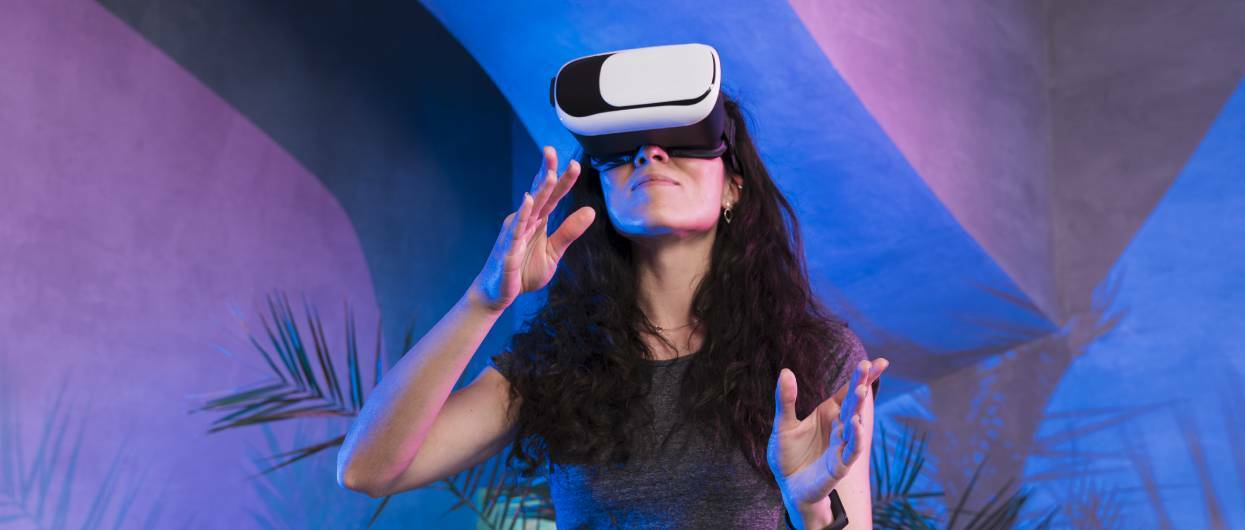 The research company also conducted clinical studies on sickle cell patients with positive results.
The research company also conducted clinical studies on sickle cell patients with positive results.
The company also has over ten clinical trials with top research medical centers in Canada and the USA.
KindVR therapy is being used to examine patients undergoing MRI scans, emergency department visits and mediport access operations.
Also read:
- #QUA on KickEX crypto exchange will start on December 8th.
- How to Develop and Run a Business with Minimum Capital
- New Version of The QUASA NFT App.
8. Karuna Labs
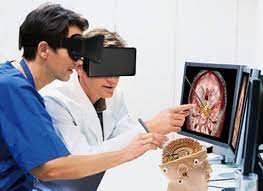 Another big VR user is Karuna Labs. They are a company that creates personalised functional restorations and chronic pain management treatments.
Another big VR user is Karuna Labs. They are a company that creates personalised functional restorations and chronic pain management treatments.
The company was founded in 2016 and focuses on VR-based, evidence-based practices. The company’s methods help the brain cope with chronic pain without the use of opioids or intrusive operations.
Karuna’s technology provides tailored instruction for therapeutic exercises that promote movement. Their FDA-registered and HIPAA-compliant items can be used to help patients relax.
Thank you!
Join us on social networks!
See you!

